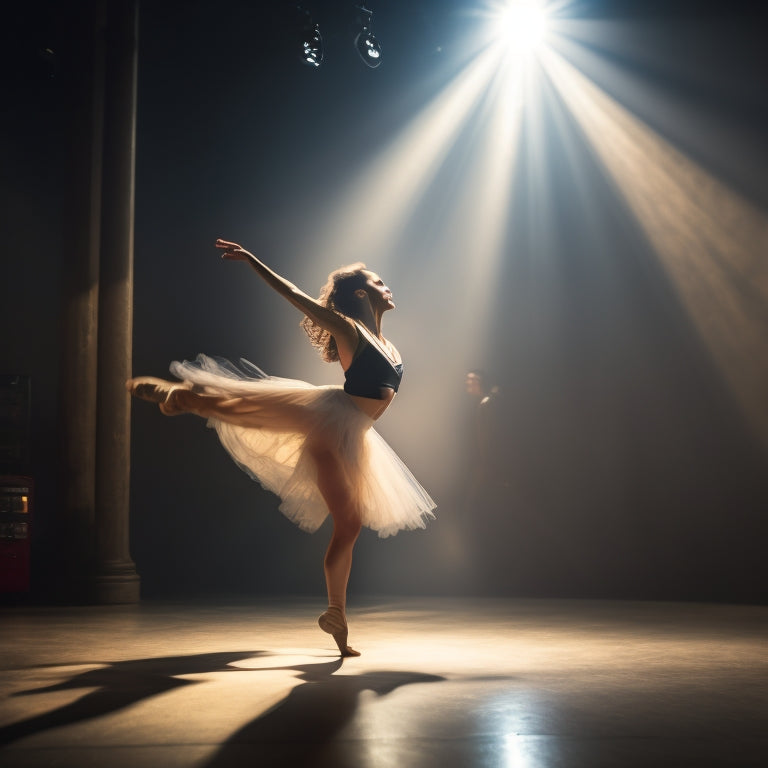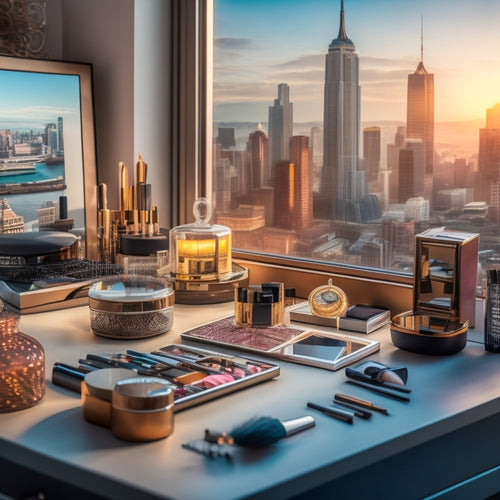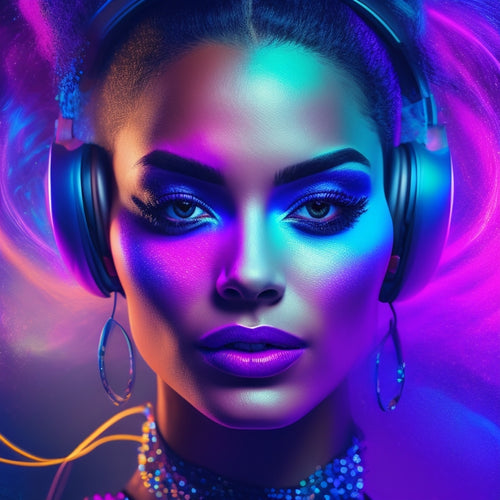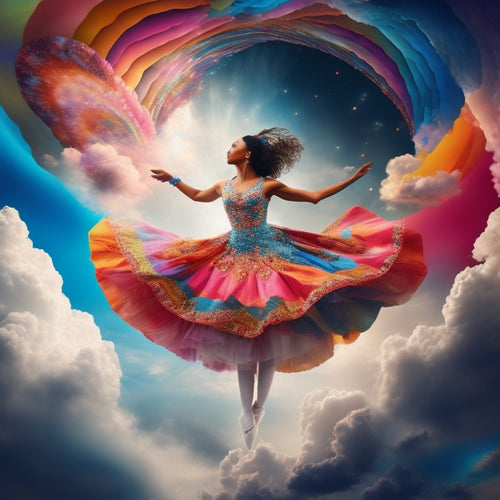
Mastering Dance Photography: Expert Tips and Techniques
Share
You're about to excel in dance photography, a challenging field where only a few succeed. To join the elite 10%, you'll need the right gear, including a high-resolution camera body, fast lenses, and a sturdy tripod. Next, master lighting techniques to create a moody atmosphere and experiment with backlighting. Finally, focus on capturing the perfect pose, considering posing dynamics, creative angles, and authentic expressions. With the right equipment, lighting, and posing techniques, you'll be well on your way to capturing the essence of movement and emotion. Now, take the next step to discovering the secrets of dance photography.
Key Takeaways
• Invest in a high-resolution camera body with fast continuous shooting speeds and a high ISO range to capture sharp images of dancers in motion.
• Master creative lighting techniques, including backlighting and silhouette techniques, to create a dramatic atmosphere and highlight dancers' movements.
• Experiment with dynamic posing techniques, such as twists and turns, and creative angles to add movement and interest to your photos.
• Focus on capturing authentic expressions and emotions by encouraging genuine facial expressions and gestures from your dancers.
• Practice and patience are key to perfecting dance photography, so be prepared to experiment and adapt to different lighting setups and posing techniques.
Camera and Equipment Essentials
When it comes to capturing the dynamic movements and expressions of dancers, having the right camera and equipment is essential. Consider investing in a high-resolution camera body that can shoot at fast continuous speeds and has a high ISO range. This will allow you to freeze fast-paced movements and capture the subtleties of your subject's expressions.
Next, think about lens selection. Prime lenses are great for creating a shallow depth of field, while zoom lenses offer flexibility. Don't forget a sturdy tripod, which will enable you to experiment with slower shutter speeds and creative tripod positioning.
With the right gear, you'll be well on your way to capturing stunning dance photography.
Lighting for Dramatic Effect
To create dramatic and mesmerizing dance photography, you'll need to master the art of lighting, which can make all the difference in conveying the energy, emotion, and movement of your subjects.
By experimenting with creative lighting techniques, you can craft a moody atmosphere that draws the viewer in. Try using silhouette techniques to isolate your dancer against a dark or brightly lit background, creating dynamic shadows that add depth and dimension.
Don't be afraid to get creative with your lighting setup – try positioning lights to highlight specific movements or using backlighting to create a radiant glow. With practice and patience, you'll be able to craft a lighting setup that elevates your dance photography to the next level.
Capturing the Perfect Pose
By understanding the importance of proper posing, you can coax your dancers into striking, dynamic positions that convey the emotion and energy of the performance.
To capture the perfect pose, consider posing dynamics, such as twists, turns, and leaps, which add movement and fluidity to your images.
Experiment with creative angles, like low or high vantage points, to add depth and visual interest.
Emotion and expression techniques are also essential, as they bring authenticity and emotional resonance to your photographs.
Encourage your dancers to convey emotions through their facial expressions, body language, and gestures, and be prepared to capture candid moments that reveal their personalities.
Frequently Asked Questions
How Do I Handle Noisy Images in Low-Light Dance Performances?
"In the dimly lit world of dance performances, you're often forced to confront the beast of noise in your images. Tame it by adjusting your ISO settings wisely and employing noise reduction techniques to salvage your shots."
What Is the Ideal Camera Mode for Capturing Fast-Paced Dance Movements?
When capturing fast-paced dance movements, you'll want to use Continuous Shooting mode, optimizing Autofocus to track subjects, ensuring sharp images; set your camera to AI Servo or Continuous AF mode for seamless subject tracking.
Can I Use a Smartphone for Professional Dance Photography?
While you can capture decent dance photos with a smartphone, its limitations in low-light conditions and limited manual controls may hinder professional results; consider mobile editing apps to enhance your images, but a dedicated camera is still ideal.
How Do I Ensure Dancers Feel Comfortable in Front of the Camera?
To guarantee dancers feel comfortable in front of the camera, you craft a calm atmosphere, building rapport through gentle guidance, posing assistance, and open communication, allowing them to relax and reveal their authentic selves.
What Are Some Tips for Photographing Dance Performances in Outdoor Settings?
When photographing dance performances outdoors, you'll love leveraging natural light to capture stunning images. Utilize urban backdrops like city streets, alleys, or parks to add grit and texture to your shots, and don't be afraid to experiment with bold angles and compositions.
Related Posts
-

10 Best Time-Saving Hacks for Busy Makeup Artists
You're no stranger to the chaotic world of makeup artistry, where every minute counts. To maximize your time, start b...
-

Elevate Your Skills: 3 Digital Dance Makeup Courses
You're one step away from accessing your full potential as a dance makeup artist. Master essential techniques like bl...
-

Unlock Your Creativity With Dancing Sublimation File
Dancing Sublimation File is a creative catalyst that opens up a world of vibrant design possibilities, providing high...


